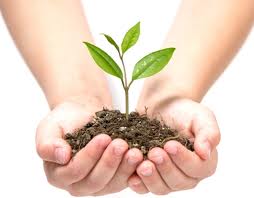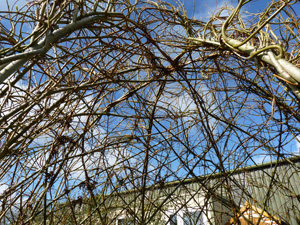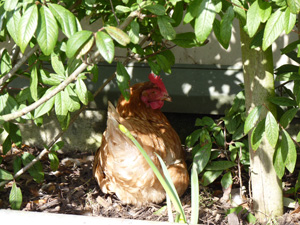September 24, 2018
Mercy Day
Wherever you are is home
And the earth is paradise
Wherever you are is holy land
You don’t live off it like a parasite
You live in it and it in you,
Or you don’t survive
-Wilfred Pelletier and Ted Pool
These lines reflect the experience of Moses at the burning bush when God says to Moses: ‘Remove your sandals from your feet, for the place on which you stand is holy ground’ (Exodus 3: 5)
 Is everywhere we stand holy ground and every bush aglow with the Divine?
Is everywhere we stand holy ground and every bush aglow with the Divine?
In Ireland up to fifty years ago, before the EEC and the Transnational Corporations were heard of, we had a sense of the mystique and wisdom of the land. We were at home in and with the land. The word for ecology in Greek is ‘oikos’ which means house or place to live. The earth is our home. We are cells in the body of Mother Earth and we dance together. With this sense of our intimate relationship with Earth how can we ever talk about agri-business. Have we forgotten agri-CULTURE? Patrick Kavanagh reminds us:
I find a star-lovely art
In a dark sod (The Ploughman)
I had the privilege of growing up in on a farm in North Kerry which consisted of pastureland, wetlands, gardens, rivers, bogs and woodlands. We had a variety of animals and fowl. We had a personal relationship with the animals and we knew each by name. I sensed nature as a prolongation of myself, my wider body. Walt Whitman says ‘We are Nature, long have we been absent, but now we return…’

We lived in the seasons as nature did. We planted our own crops and preserved the seeds for the next years planting – no genetic modification of our seeds. We used the natural growing medicines and visits to the doctor were rare. But change came in the name of progress and the lines of Gerard Manley Hopkins' poem gradually became a reality:
Generations have trod, have trod, have trod;
And all is seared with trade; bleared, smeared with toil
And wears man’s smudge and shares man’s smell: the soil
Is bare now, nor can foot feel, being shod (God's Grandeur)
Today we are aware that that the increase in human population and our trade and extraction is bringing our mysterious planet to the point of extinction. We are very aware of the extinction of species, depletion of our forests, pollution of our water and land. Since the 70’s the curlew bird population in Ireland is down by 80%. Frogs are an endangered species as are many more Irish species of Flora and Fauna. But we can turn it around. One of the ways to do this is to preserve as many green spaces as we can. It is out of this wisdom that Tearmann organic garden was born.
Tearmann (Sanctuary, Safe Place) Community Garden and Wild Life Area consists of two acres of land nestled at the foot of Baltinglass Hill, Baltinglass, Co. Wicklow. The venture aims to create a balance between wild life and cultivated life. We need both. Thoreau said ‘In wilderness is the preservation of the world’.

The variety and splendour of Tearmann helps restore our imaginative powers and awakens in us our sense of the sublime. Here we have a quiet space to observe the lilies and daisies of the field and the birds of the air and to see how our Father/Mother cares for them. Each year when we plant potatoes and all the other seeds we are brought into the reality of death and resurrection in our own life and in all life and the teaching of Jesus is experienced: '… A grain of wheat remains a solitary grain unless it falls into the ground and dies; but if it dies, it bears a rich harvest.’ (John 12:24)
The garden is a restoration of our sense of Bioregionalism which we were long before we were nations. (A bioregion has no hard boundaries and is distinguished by its many natural features, including the flora, fauna, soil, geology and drainage). Today we are re-called to the local and to know our own back garden for the first time. Where is your ‘back garden? Is it a window box? A roof top garden? A farm? Woodland? Preserve it as a precious relic as the monks preserved the relics of the saints in the past.
.JPG)
So:
We join with the earth and with each other
To bring life to the land
To restore the waters
To refresh the air
………………………….
To renew the forests
To care for the plants
To protect the creatures
…………………………………….
To recreate the human community
To promote justice and peace
To remember our children
………………………………………….
We join together as many and diverse expressions
Of one loving mystery for the healing of the
Earth and the renewal of all life
- UN Environmental Sabbath Programme
Video: How Tearmann Community Garden began (04:53)
Resources you might seek out:
Messages to: Mary Carmody rsm